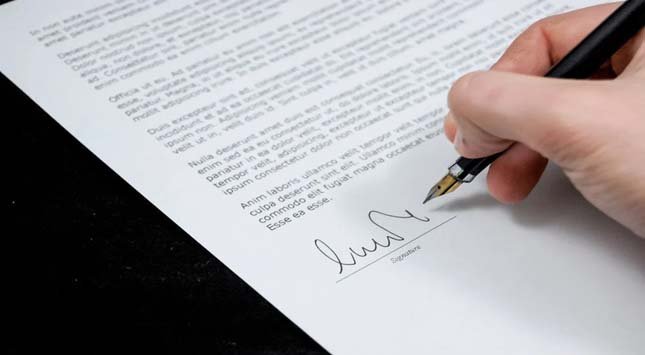Using a credit card in an emergency sounds like a great idea. If you are in trouble like you need major repair for your car you can pay through credit card. But depending on a credit card to meet unexpected expenses is not an excellent financial move.
You may responsibly use a credit card but in the end, you may have to pay a high penalty, interest charge, and fees if you fail to repay on time.
Credit cards are a huge responsibility, more so when you’re a student with no steady income source. It all seems like rainbows and roses when you can shop all you want without having to pay for it upfront. But unsupervised spending can lead to a lot of trouble.
Students need to spend responsibly and keep an account of their expenses. Also, while we are at it, you must think of saving more money rather than looking for ways to spend it!
Most students use a credit card for their fees and daily expenditure. But they end up paying more than they use to. One way to save money is by transferring to universities in Australia. You can enroll for the same course and curriculum from a government college or a cheaper institution! Students often transfer universities after a semester or two as it doesn’t affect their academics as well.
Transferring universities also gives you an edge when you are negotiating for lower rates on your credit score. It makes it easier for students to apply for educational loans as well.
Another way to improve your credit score is to refinance your student loans. Loan expert says if student loan refinancing is smartly acquired students can get a loan at a low rate. You can get student loan refinancing at a low rate if you can build a good credit score, are good, and have a regular income. If you can not meet this condition, then using a co-signer is also helpful.
For this, you need to keep a dedicated saving account. It is hard to differentiate between saving and emergency funds when they combine into one. Have a different account for each that gives clarity on financial safety. You can have a direct auto-debit to assure you are sending some money to your emergency fund every month.
Here are a Few Reasons Why Credit Card for Emergencies is Risky:
1. It is Borrowed Money

Saving some money for an emergency is essential for the future. If you have the extra income, you can keep them when you might have no income at all. You will be spending your own money there would be no burden to pay yourself back.
The credit card money you spend becomes credit card debt that later you have to repay. You may borrow money through a credit card. But in the future, you may never know if you will have extra income to handle debt. If you fail to repay, you may end up crushing the debt load.
2. Interest Rate is high.
Using a credit card in emergencies not only creates debt, but you pay for the right of having that debt. Most credit cards charge double interest rates; it can be hard to pay down the balance.
Most investors may receive a confirmed annualized return of 15%. Credit card companies charge an interest rate more than double the rate. When you borrow money at double the digital interest rate, it doesn’t help with your finances. Credit Card is fantastic when you are saving, but they can turn an enemy when you are paying.
3. Credit May Not be Accepted.

The whole world using a credit card for a 50-cent pack of gum is familiar; it is easy to think the card is globally accepted. But plastic sometimes isn’t tolerated, and this can come at a disconcerting moment.
If you need emergency repair at home, the workers may not accept credit cards. Most work independently. They do not indulge in additional fees, and hazards that come with a credit card. Instead, most opt for the much more traditional modes of payment.
Credit cards are not as trustworthy as you’d think. In fact, they are only worth it if you have a steady income source to maintain a good credit score.
4. Credit Dries Up – Later?

If you are adding on your credit card to get you out of a dilemma, there is no way how expensive that jam can be. Starting credit can run out at that moment, and you may go out of options for solving whatever issues you are facing.
Saving can help you in this crisis. But keeping a healthy emergency fund will help you to select other alternatives. Taking a personal loan or renting money from family can be other alternatives. At least these are the best options on the table. If you burn your credit limit and fry your credit score, you may have a hard time finding help.
5. A Dormant Credit Card can be Cancelled, or Even Limits can be Reduced.
If you do have a credit card saving for your emergency, it can get cancelled after some months of not being used. The credit card issuer can also reduce credit card limits. This can be hard to find in a complete emergency on the credit card. You may end up using available credit on different credit cards to pay for your investments. I recommend you keep track of your expenses and keep checking the available credit on your card so that you don’t exceed it.
6. It May Charge Diverse Fees
Most credit card companies make high income on interest charges they make nearly as much on fees. If you fail to make a payment on time, you may end up paying massive fees. If you go more than the credit limit, you may have to make another fee added to your bill.
If you need a special-reward credit card, you may have to pay an annual fee. If you need to transfer from one card to another, you need to pay a balance transfer fee. If you use a credit card outside your country, you may likely find a foreign exchange fee.
7. Many Cards have Hidden Rules in the Fine Print.

When you read the fine print signing up for a credit card, you will be shocked at the contract favours the credit company. The companies create small prints so that you do not try reading them.
Example:
We think that Fixed interest rate cards will remain with the interest rates but likely will not. The fine print shows that it is only fixed at that rate until the company gives you two weeks’ notice that the rate will go up. You will as well provide upright to take the credit card company to court for any dispute you may have. There are many other cases hidden in that fine print.
8. Credit Cards Attract you to Make You Stick to Them.
When you receive an application for a credit card telling a 0% fixed rate and you to fill out the information. Later you will receive another card that has a high rate of interest.
Companies say filling out the application will agree to accept whichever card they want to send you. But it may not be the same as what they would have advertised.
A credit card may cause high financial damage. So it is essential to know how to avoid damage before you apply. If you have the temptation of using a card unwisely then it is better not to opt for a credit card.
Conclusion:
A credit card seems a lifesaver in a tough time, but it can be risky if you fail to repay on time. It is always better to have a savings account to cover emergency expenses. Credit card companies make you pay double the amount you have received.

